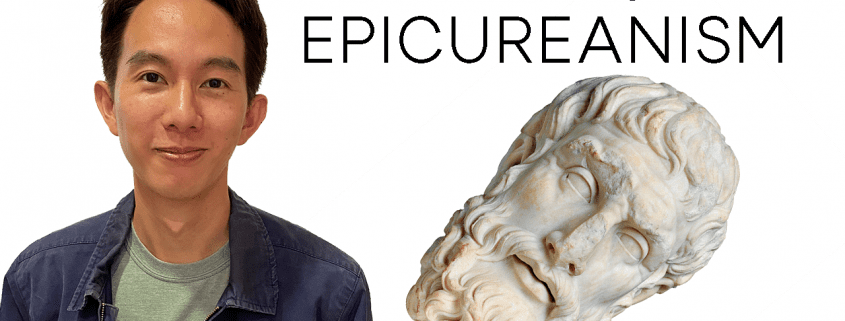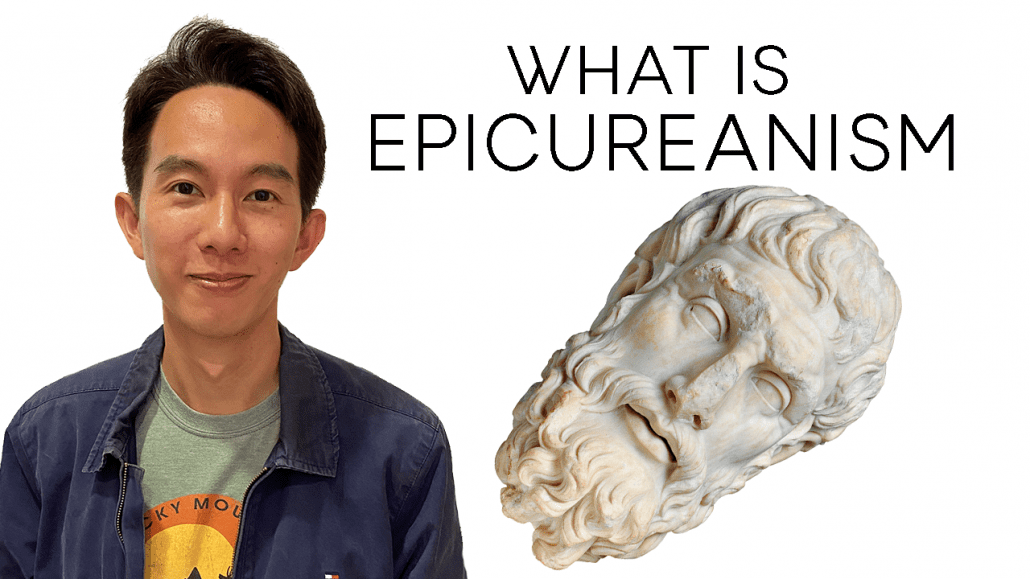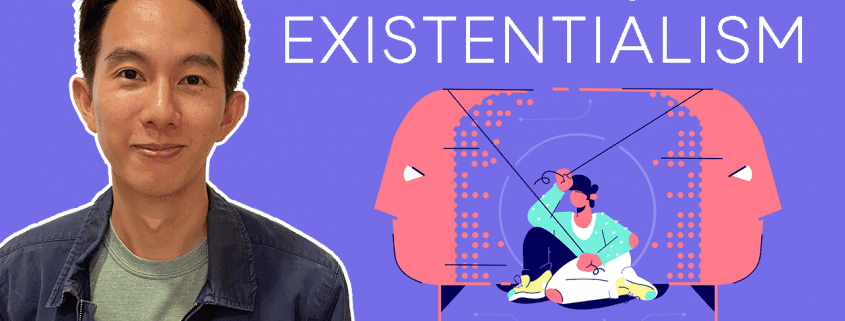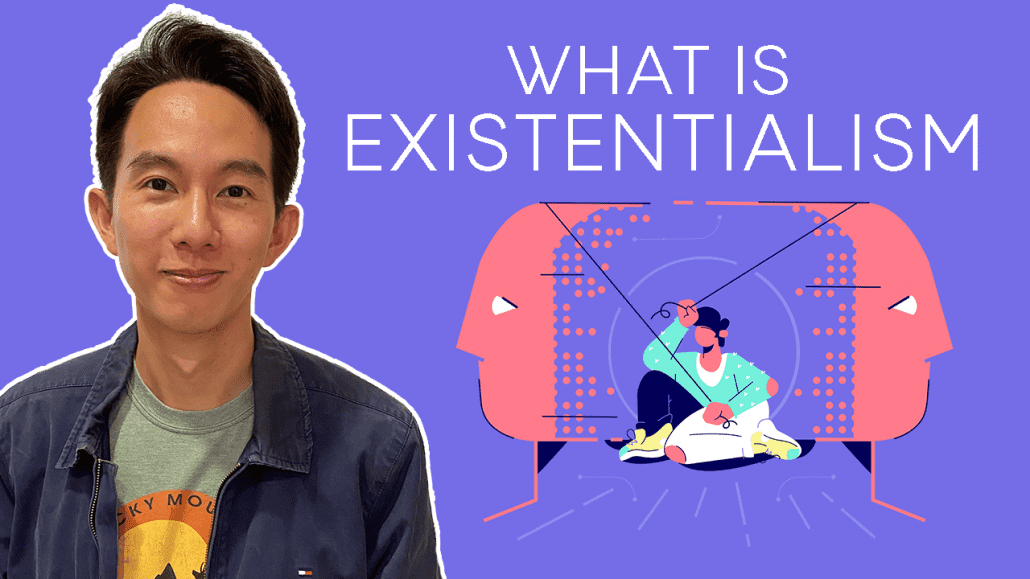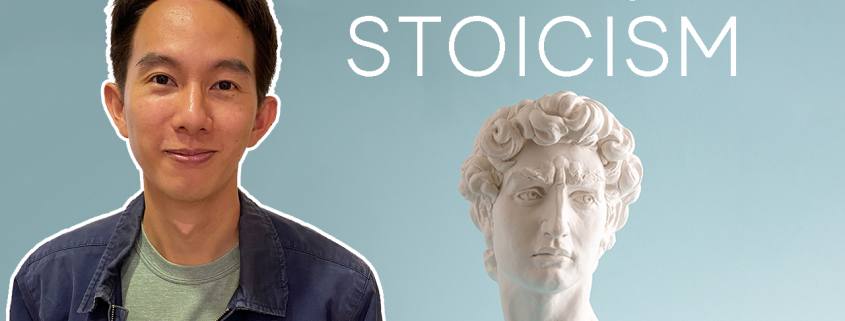
Existentialism is a philosophical movement that has been gaining attention in recent years.
It is a school of thought that emphasizes the individual’s freedom and choice in creating their own meaning and purpose in life, as well as the inherent meaninglessness of life.
This idea may sound daunting but applying existentialism in one’s life can bring about a sense of empowerment, self-reflection, and authenticity.
In this blog post, we’ll explore the origins of existentialism, the key principles, how it can be applied in one’s life, and the benefits of it.
What is Existentialism?
Existentialism is a philosophical movement that emerged in the late 19th and early 20th centuries.
It emphasizes the individual’s freedom and choice in creating their own meaning and purpose in life, as well as the inherent meaninglessness of life.
One of the key principles of existentialism is that individuals are responsible for creating their own meaning and purpose in life, as there is no inherent purpose given by a higher power or external factor.
This means that individuals must take responsibility for their own lives and the choices they make, rather than relying on traditional concepts of morality or religion to guide them.
Another key principle of existentialism is the emphasis on the individual’s unique experience and subjectivity.
This means that each person’s perspective on the world is unique, and that there is no objective truth that can be known.
Existentialism also emphasizes the inherent isolation of the human condition, and the idea that individuals are ultimately alone in the world.
This isolation can lead to feelings of anxiety and alienation, but it can also be a source of freedom and empowerment, as individuals are free to create their own meaning and purpose in life.
Origins of Existentialism
Existentialism originated in the late 19th and early 20th centuries, primarily as a response to the rapidly changing social and political landscape of the time.
The industrial revolution and the rise of science and technology had led to a sense of alienation and disconnection among many people, and existentialism emerged as a way to make sense of these feelings.
One of the key figures in the early development of existentialism is the Danish philosopher Søren Kierkegaard, who is often considered to be the “father of existentialism”.
Kierkegaard wrote about the individual’s subjective experience of the world and the importance of personal choice and freedom.
He also emphasized the importance of faith and the individual’s relationship with God.
Another key figure in the early development of existentialism is the German philosopher Friedrich Nietzsche, who rejected traditional morality and religion and emphasized the importance of the individual’s will to power.
Nietzsche’s ideas laid the foundation for much of the existentialist thought that followed.
The existentialism as a philosophical movement was popularized by Jean-Paul Sartre, Martin Heidegger, and other philosophers in the mid-20th century.
Sartre’s work focuses on the concept of freedom and the individual’s responsibility for their own existence, while Heidegger’s work focuses on the question of being, and the idea that individuals must understand their own existence in order to understand the world around them.
Existentialism also has some influence from the psychoanalytic theory of Sigmund Freud and Carl Jung, which have focus on the human psyche and its relation to the human condition.
Existentialism had a significant impact on literature, theatre, film, and art, and it continues to be an influential philosophy to this day.
Benefits of Existentialism
Existentialism has several benefits, including:
- Empowerment of the individual: Existentialism emphasizes the importance of personal freedom and choice, and encourages individuals to take responsibility for their own lives and the choices they make. By recognizing that they are the ones responsible for creating meaning and purpose in their lives, individuals can feel a sense of empowerment and agency.
- Encourages self-reflection: Existentialism encourages individuals to question their own existence and to think deeply about the nature of their lives. This self-reflection can lead to a deeper understanding of oneself and one’s place in the world.
- Promotes authenticity: Existentialism emphasizes the importance of living an authentic life, rather than conforming to societal expectations or living a life based on external validation. By living an authentic life, individuals can find true fulfillment and satisfaction.
- Acknowledges the complexities of the human condition: Existentialism acknowledges that life can be difficult and that there is no easy or objective answer to the question of existence. It accepts that human existence is complex and that individuals must navigate the world in their own way.
- Encourages individuality and creativity: Existentialism emphasizes the importance of individuality and creativity, as individuals are encouraged to create their own meaning and purpose in life. This can lead to a more fulfilling and creative life, as individuals are free to express themselves in unique ways.
On the flip side, Existentialism also has its own limitations and critiques, as it can be argued that it promotes a sense of hopelessness and pessimism, and it can be seen as to be too individualistic, leading to neglecting the impact of social, economic and political structures on individuals.
How to Apply Existentialism in Your Life
Here are a few ways to apply existentialism in your life:
- Accept responsibility for your choices: Existentialism emphasizes that individuals are responsible for creating their own meaning in life. Accepting responsibility for your choices means recognizing that you are the one who ultimately determines the direction of your life, and that you are responsible for the consequences of your actions.
- Embrace freedom and choice: Existentialism also emphasizes the importance of individual freedom and choice. Embracing this means recognizing that you have the power to shape your own life, and that you are not constrained by societal expectations or predetermined paths.
- Recognize the inherent meaninglessness of life: Existentialism is often associated with the belief that life has no inherent meaning, and that individuals must create their own meaning. Recognizing this can help you to detach yourself from the expectation of finding a pre-defined purpose or goal in life, and instead focus on creating your own sense of purpose and meaning.
- Create your own values: Another key aspect of existentialism is the idea that individuals must create their own values, rather than relying on pre-existing ones. This can be done by reflecting on what you believe is important, and then actively working to align your actions with those values.
- Embrace uncertainty: Existentialism also emphasizes the importance of embracing uncertainty and the unknown, rather than trying to avoid it. This can be done by learning to be comfortable with ambiguity, and by embracing the unknown as an opportunity for growth and self-discovery.
- Practice mindfulness: Mindfulness is a key practice that can help you to more fully experience the present moment, and to be more aware of your thoughts, feelings, and actions. This can help you to connect more deeply with your true self and to create a more authentic and meaningful life.
- Develop authenticity: Existentialism emphasizes the importance of living an authentic life, rather than conforming to societal expectations or living inauthentically. To develop authenticity, try to be true to yourself and your own values, and avoid living your life based on what others expect of you.
- Cultivate a sense of self-awareness: Self-awareness is an important aspect of existentialism, as it allows you to understand your own thoughts, feelings, and actions, and to make choices that align with your true self. To cultivate a sense of self-awareness, try to be mindful of your thoughts and feelings, and reflect on your actions and their motivations.
- Seek out new experiences: Existentialism encourages individuals to seek out new experiences and to take risks, as this can help you to grow and evolve as a person. Try to step out of your comfort zone and explore new things, whether that means trying new hobbies or visiting new places.
- Find your own purpose: As mentioned earlier, existentialism emphasizes the idea that individuals must create their own meaning and purpose in life. Finding your own purpose can be a challenging but rewarding process, and it may involve experimenting with different activities, values, and goals.
- Practice self-acceptance: Existentialism encourages individuals to accept themselves as they are, rather than trying to change themselves to fit societal expectations. Practicing self-acceptance can help you to be more comfortable in your own skin, and to be more accepting of others as well.
- Reflect on your own mortality: Finally, existentialism emphasizes the importance of reflecting on one’s own mortality, the fact that we have a limited time in this life and it will come to an end. Reflecting on your own mortality can help you to appreciate the present moment and to live your life in a more meaningful and authentic way.
It’s important to note that these points are not mutually exclusive, and that they can be combined in different ways to help you to apply existentialism in your life.
Famous Examples of Existentialism
Existentialism has been influential in the works and lives of many famous historical figures.
Here are a few examples:
- Jean-Paul Sartre: A French philosopher and one of the key figures in existentialism, Sartre is known for his belief in the freedom of the individual and the importance of personal responsibility. He believed that individuals must create their own meaning in life and that they are responsible for the choices they make. One of his most famous quotes is “Man is condemned to be free.”
- Friedrich Nietzsche: A German philosopher, poet, and cultural critic, Nietzsche is known for his critique of traditional morality and his emphasis on the importance of the individual. He believed that individuals should embrace their own freedom and creativity, and that they should strive to become “supermen” who transcend the limitations of traditional morality. Nietzsche wrote “Become who you are.”
- Albert Camus: A French philosopher, writer, and journalist, Camus is known for his belief in the inherent meaninglessness of life and the importance of individual freedom. He believed that individuals must create their own meaning in life, and that they should embrace the human condition and live in a way that is true to themselves. One of his famous quotes is “The only way to deal with an unfree world is to become so absolutely free that your very existence is an act of rebellion.”
- Martin Heidegger: A German philosopher and one of the key figures in existentialism, Heidegger emphasized the importance of individual freedom and the inherent meaninglessness of life. He believed that individuals must create their own meaning in life, and that they should strive to be authentic and true to themselves. He wrote “Being-in-the-world is a more primordial state than either the “I” or the “world” considered separately.”
- Simone de Beauvoir: A French feminist, writer and philosopher, Simone de Beauvoir is known for her belief in the importance of individual freedom and the need to challenge societal expectations. She believed that individuals should embrace their own freedom and strive to create their own meaning in life, regardless of their gender. One of her famous quote is “One is not born, but rather becomes, a woman.”
It’s worth noting that these figures were not exclusively existentialists and their philosophies were not limited to existentialism alone.
Additionally, their advice may be interpreted and applied differently based on an individual’s perspective.
Concluding Thoughts
In conclusion, existentialism encourages individuals to take responsibility for their own lives and the choices they make, rather than relying on traditional concepts of morality or religion to guide them.
Additionally, it encourages self-reflection, promotes authenticity and helps individuals to understand their own existence in order to understand the world around them.
This school of thought might be challenging to understand, but for those who are willing to explore it, it can bring about a sense of empowerment, self-reflection, and authenticity.
The next time you’re feeling lost or uncertain, remember that through existentialism, you have the power to create your own meaning and purpose in life.
Now that I have shared what existentialism is about, and the practical ways you can apply it in your life, do you think this is a life philosophy which you will want to adopt?
For those already embracing this philosophy, what are some other ways which you have applied existentialism in your life?
Let me know in the comments below.
After trading for 18 years, reading 1500+ books, and mentoring 1000+ traders, I specialise in helping people improve their trading results, by using tested trading strategies, and making better decisions via decision science.





